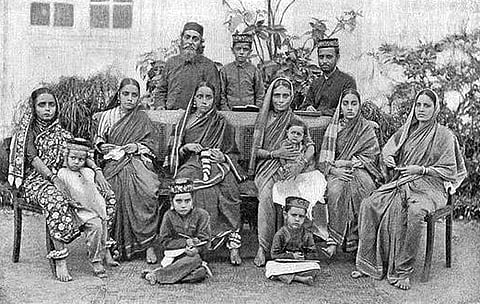Navras Jaat Aafreedi's book Jews, Judaising Movements and the Traditions of Israelite Descent in South Asia is a study of this influential religious minority. It delves into the history of Judaising movements, and engages with the lesser-known Israelite traditions within various communities in Southasia. Published by Pragati Publications in 2016, the book's author, a scholar of Indo-Judaic Studies, hopes to stimulate interest of Indian academics in Indo-Judaic Studies.
The book traces the presence of Jews in Southasia, which, according to "their records" goes back "for more than two millennia", even though other historical records suggest their presence in the Subcontinent goes back around 11 centuries. For most of their history, Southasia's Jews have been living in present-day India, though they did establish small communities in what is now Pakistan and Bangladesh. Despite the shorter periods spent by Jewish communities in these regions, there have always been groups living here who consider themselves of Israelite descent. These groups including the Pakhtuns of Afghanistan and Pakistan, Kashmiris, Qidwais and Bani Israil clans of India trace their origin to Judaism given the similarities of traditions with the Israelite Jews. Some of these similarities have been written about including by Yitzak Ben-Zvi, a historian and the second President of Israel, who in his book The Exiled and the Redeemed recorded testimonies provided by Afghan-Jewish immigrants to Israel about Pathan practices that are Jewish in nature: the lighting of candles on the Sabbath, keeping of long sidelocks, wearing of shawls resembling tallith, the Jewish prayer shawl, circumcision on the eighth day after birth, and the Levirate – in which a man marries his brother's widow.

